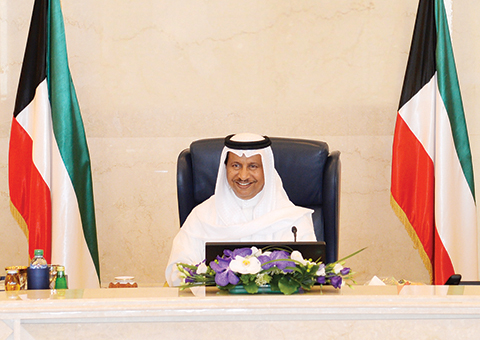KUWAIT: There has been a noticeable increase of interest in local brands in Kuwait and other GCC countries, which indicates that local brands have a prime opportunity to thrive and expand. To look more into the potential of local brands, Kuwait Times spoke to Altaf Almutairi, an entrepreneur and activist with expertise in the field of luxury brands management. Almutairi pursued her education in Luxury Brand Management at IFA Paris Fashion Academy and has founded and participated in numerous industry products in this domain.

Almutairi told Kuwait Times that a clear shift towards local brands has emerged in the Gulf region, prompting international brands to incorporate the region’s cultural richness into their offerings. This presents a unique opportunity for local brands to establish themselves and thrive in the market.
However, achieving this requires local brands to adhere to key principles such as robust regulations, comprehensive support systems, and building trust among local clients, investors, and the government. When it comes to local fashion brands, support should encompass financial aid, guidance, legal assistance, and access to advanced facilities crucial for the fashion industry’s growth and the country’s economic development. The primary challenge for local brands lies not in expertise, but rather in the lack of essential infrastructure to undertake specialized projects in the fashion sector, said Almutairi who is also the chairwoman of the Entrepreneurship Committee and secretary trustee of the International Relations Committee at the Kuwait Youth Assembly.
How to standout
Almutairi explained that for a brand to excel and thrive, it must embody a definitive identity, vision, and unwavering conviction that propels its sustainability. It is crucial for brands to target their local markets and address the distinct requirements of their customers while upholding product quality that aligns with local standards. Failing to grasp and meet the expectations of local consumers can jeopardize a brand’s success.
Local brands, however, sometimes gravitate towards a more global approach, overlooking their geographical uniqueness and rapid access to the Gulf market and local customers. This misstep must be avoided by local brands. They should instead concentrate on their specific geographical positioning. It is imperative for these brands to offer products tailored to the precise needs of their local market to ensure ongoing relevance and success.

Global expansion
Almutairi emphasized that it is crucial for a local brand to engage in observation and clearly define its goals. Evaluating the choice between regional and global expansion should be done carefully, considering whether it aligns with the brand’s identity or could potentially dilute its essence.
Not all local brands may be suited for international expansion. However, those with the necessary capabilities must be strategic and mindful in their approach. In today’s digital age, there are numerous cost-effective opportunities for global expansion, thanks to technological advancements that enable wide consumer reach. Nevertheless, a key challenge lies in understanding and adapting to the diverse needs and preferences of a global audience when offering products or services. With the target market being vast and options limited, it is essential to provide solutions that meet the demands of a varied audience.
Keep your brand authentic
Almutairi explained that local brands have made a concentrated effort to infuse the cultural essence of their regions into their products and services with sophistication and innovation. While this approach has been successfully executed by many, it is crucial that the cultural references do not eclipse the brand’s unique identity. Brand owners need to understand how to effectively utilize this cultural inspiration to showcase their expertise, meet customer needs, and create opportunities.
It is important to recognize that the industry is currently experiencing intense competition. These brands face the dual challenge of ongoing competition and the necessity to develop a compelling vision, while continuously enhancing their offerings to cultivate brand loyalty. Brands that fail to adapt may struggle to survive in this competitive landscape. Furthermore, customers are not easily swayed by new entrants and are more inclined to remain loyal to brands with a strong, established reputation in the market.
Local talent revered
Almutairi concluded by highlighting the Gulf’s evolving interest in local talents, especially in the fashion world. She said the Gulf region’s fashion industry has experienced a remarkable surge in recent years, fueled by a strong commitment to its advancement. Local designers have been supported through a variety of means, including annual competitions, industry, associations, and representation at international fashion events. Furthermore, dedicated organizations within the sector offer guidance and support to emerging talents.
The region’s active participation in key fashion forums underscores its dedication to fostering industry growth. Noteworthy among these efforts is Riyadh’s inaugural Fashion Week, poised to revolutionize the Gulf designers’ community by providing a platform for local talents to showcase their creations on a global stage. The industry’s progress is further bolstered by the presence of seasoned professionals whose expertise has been instrumental in nurturing local talent and shaping the region’s fashion landscape.
 Hong Kong Bannar.jpg)








